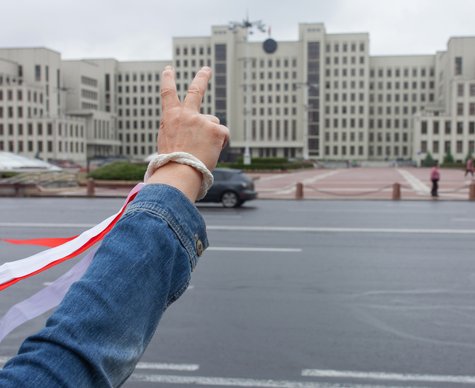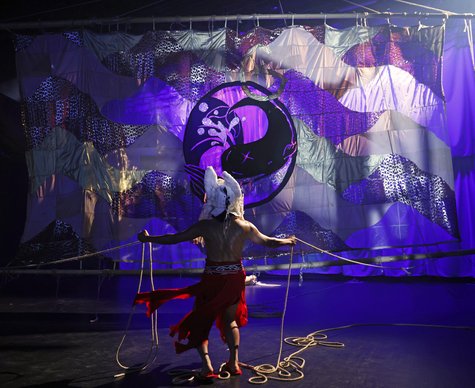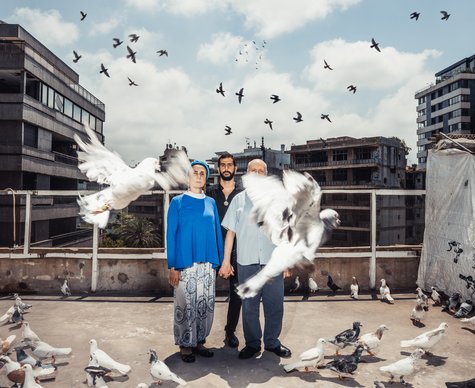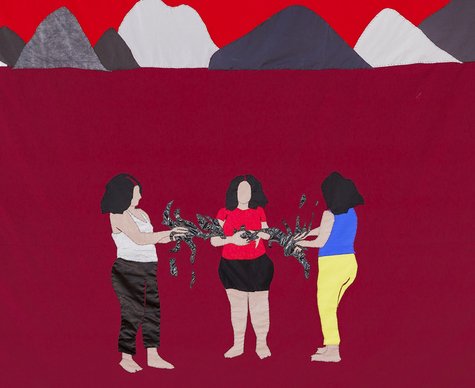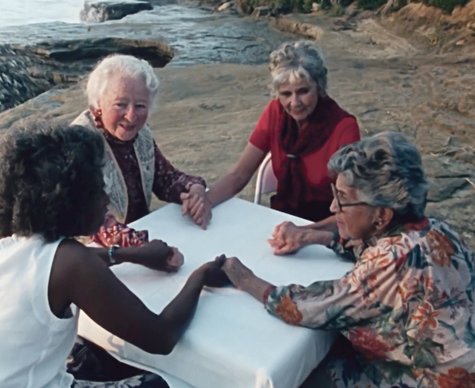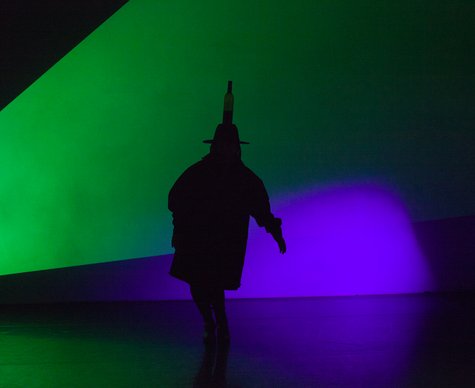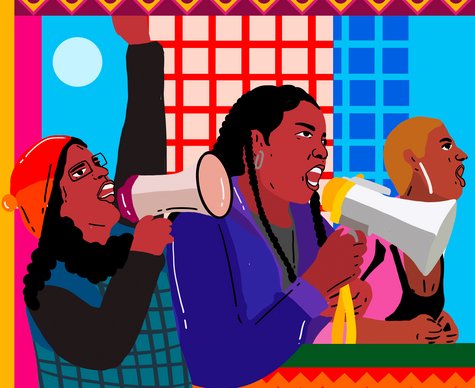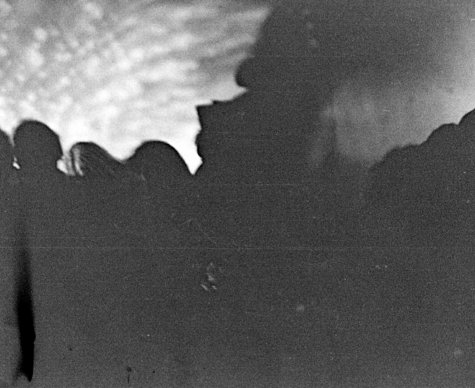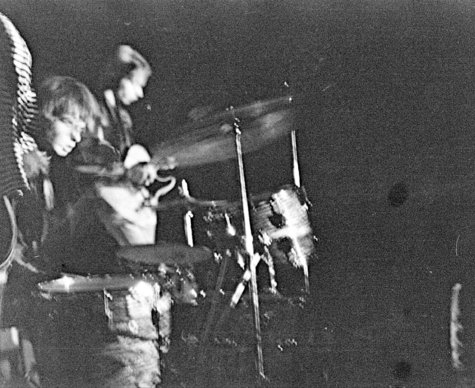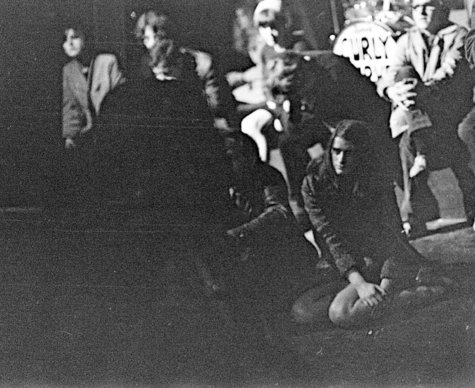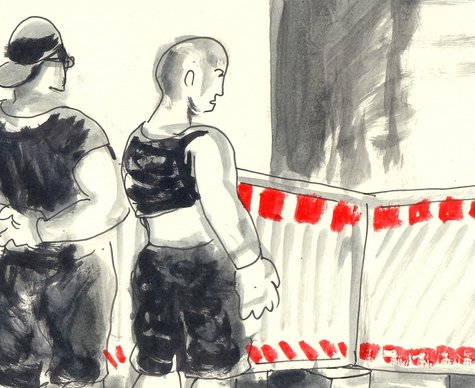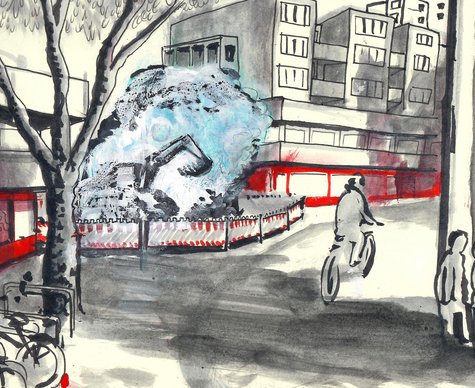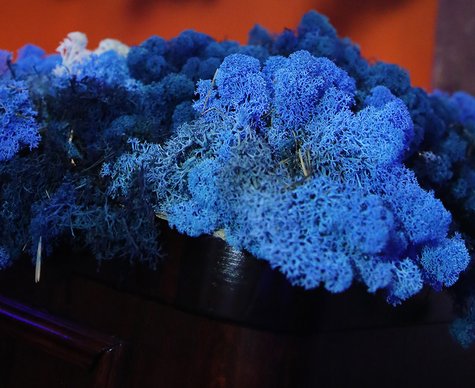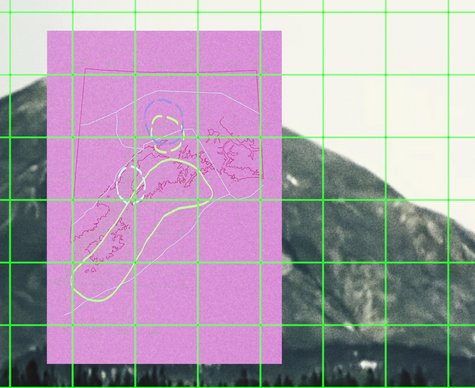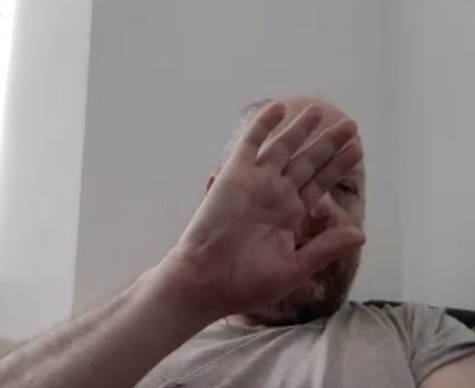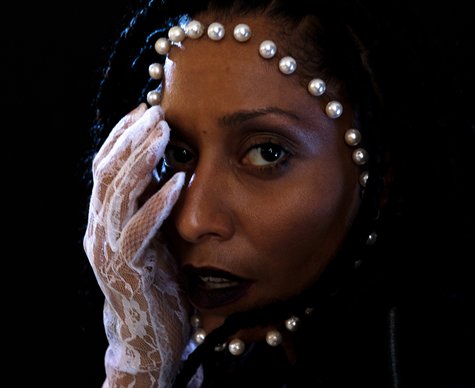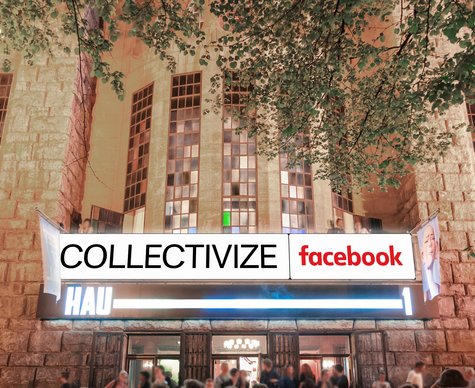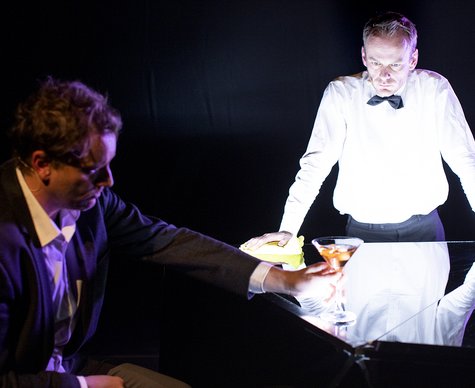Direction & choreography: Ali Chahrour / Production managers: Christel Salem, Chadi Aoun / Performance: Zena Moussa, Tenei Ahmad, Rania Jamal / Music: Lynn Adib, Abed Kobeissy / Assistance direction & choreography: Chadi Aoun / Light design & technical director: Guillaume Tesson / Assistance technical director: Pol Seif / Sound design: Benoît Rave / Scenography: Guillaume Tesson, Ali Chahrour / Communication management: Chadi Aoun / Text editing: Hala Omran
Ali Chahrour
When I Saw the Sea
- Music
- Performance
- Dance

“On September 27, 2024, migrant domestic workers in Lebanon, already vulnerable under the Kafala system, were abandoned by their employers in the midst of a devastating war. Trapped in South, North and in Beirut capital of Lebanon, they faced constant shelling and bombings as many Lebanese employers fled, leaving women from Cameroon, Ghana, Sudan, Burkina Faso, Bangladesh, Ethiopia, Kenya, Nigeria, Senegal, Sri Lanka, Nepal, Philippines and Sierra Leone to fend for themselves. Promises of help were never fulfilled, and some workers were locked in homes in heavily bombed areas, dying trapped under the rubble after desperate attempts for rescue. Others, without passports or belongings, struggled to find safety.
While the Lebanese Ministry of Education opened shelters for displaced citizens, migrant workers were excluded, forcing many to seek refuge by Beirut’s seaside, where they experienced the ‘endless horizon of freedom’ as they saw the sea for the first time.” Ali Chahrour
Far from western models, the internationally acclaimed dancer and choreographer Ali Chahrour has created a language inspired by Arab myths and by the political, social, and religious context of his country. Through it, he explores the deep relationships between the body and movement, between tradition and modernity.
His new work “When I Saw the Sea” unfolds on a minimalist stage: the activists Rania, Zena and Tenei – the last two came to Lebanon as migrant workers – embark on a powerful journey of their previously unheard stories through dance, theatre and music. In doing so, they give a voice to countless other labourers from countries such as Cameroon, Sudan and Sierra Leone – people who have been bound to their employers and deprived of their rights by the kafala system – and thus create a deep insight into the political and social reality of Lebanon.
“When I saw the Sea” highlights the abuses of this repressive labour system while paying tribute to the courage and resistance of women fighting for justice and freedom. With a mixture of personal and collective testimonies, the work touches on themes such as love, motherhood, war, exile and home. With the music of Abed Kobeissy and the soulful voice of singer Lynn Adib, this is a determined celebration of life, rising above the pain of past struggles.
“For me, right now, resistance is about keeping stories alive by telling them and making them heard. Perhaps some kind of justice can be achieved by telling the stories of those who live through these catastrophic events.” (Ali Chahrour in an interview with Maria Rößler for Theaterspektakel)
“My work is inspired by the Arabic myths, but also by our contemporary stories. I'm very much interested in looking to those hidden stories and voices in the alleys of Beirut that no one wants to talk about or is interested in. I personally feel the need of telling stories, especially the stories of the people who left this world without getting the justice that they deserve, with my own artistic approach.” (Ali Chahrour in conversation with Petra Poelzl during the presentation of his work “Iza Hawa” at HAU2)
Cast
Dates
Further Information
After the performance on 2.6.: Artist Talk
Credits
Production: Ali Chahrour. Co-production: HAU Hebbel am Ufer, Le Festival d'Avignon, Ibsen Scope, Arab fund for arts and culture (AFAC), Al Mawred al Thaqafi, DeSingel Antwerp, Domino Zagreb / Perforations Festival, Holland Festival, Zürcher Theater Spektakel, Al Madina Theatre. Funded within the framework of the Alliance of International Production Houses by the Federal Government Commissioner for Culture and the Media. Supported by: Beryte Theatre, L'Institut Français de Beyrouth, Wicked Solutions, WASL Productions, Beit el Laffé, Orient 499, Raseef, Beirut, Houna centre, Zoukak Theatre.


Location
HAU1
Stresemannstr. 29, 10963 BerlinThere are two marked parking spots in front of the building. Access to the Parkett by means of a separate entrance with lift when necessary. Barrier-free restroom facilities are available. Tickets for wheelchair users and accompanying persons can be booked via the ticketing system. If you need any help, please contact our Ticketing & Service team at +49 (0)30 259004-27 or send us an email at
tickets@hebbel-am-ufer.de.


















